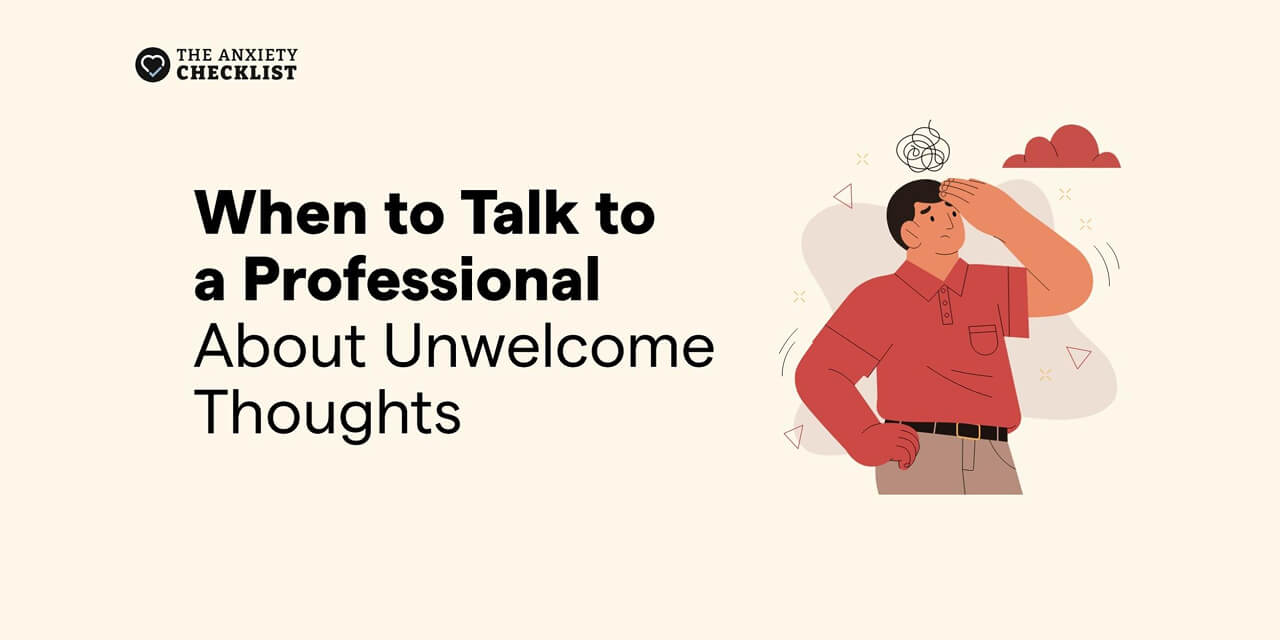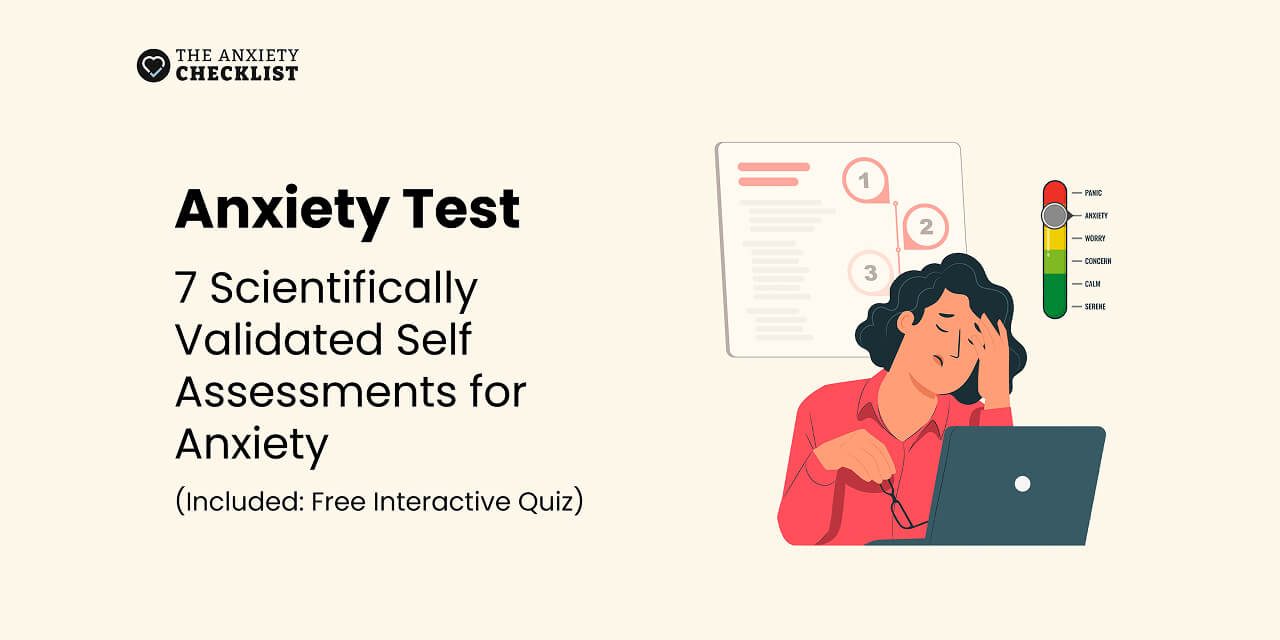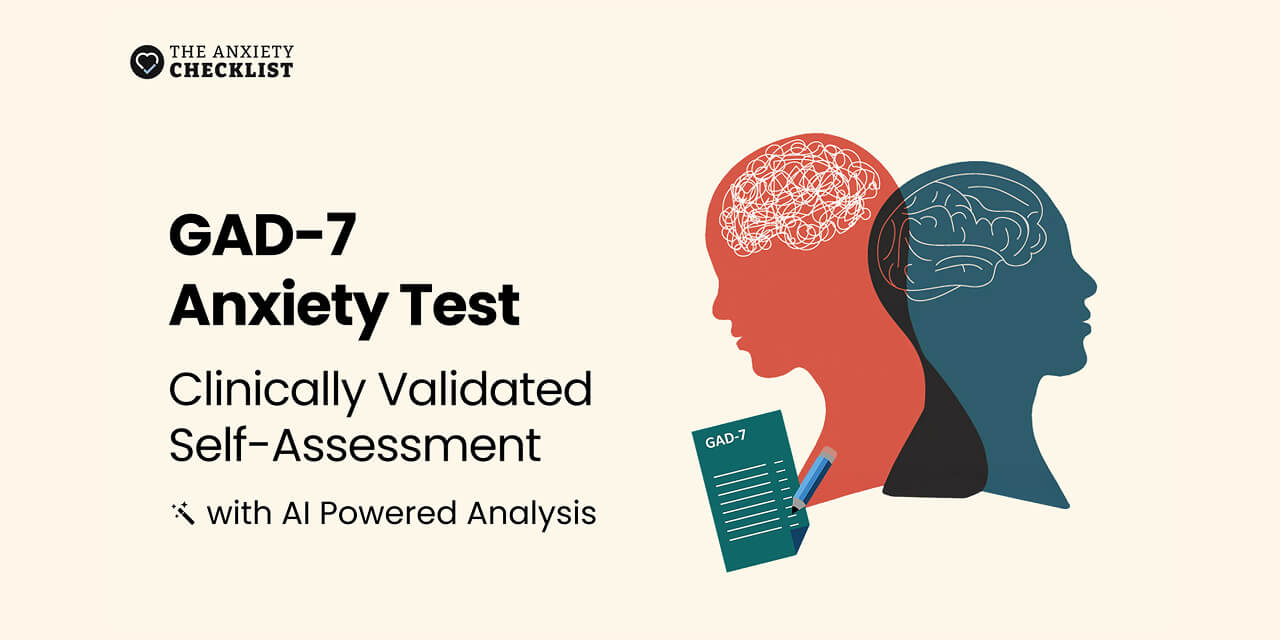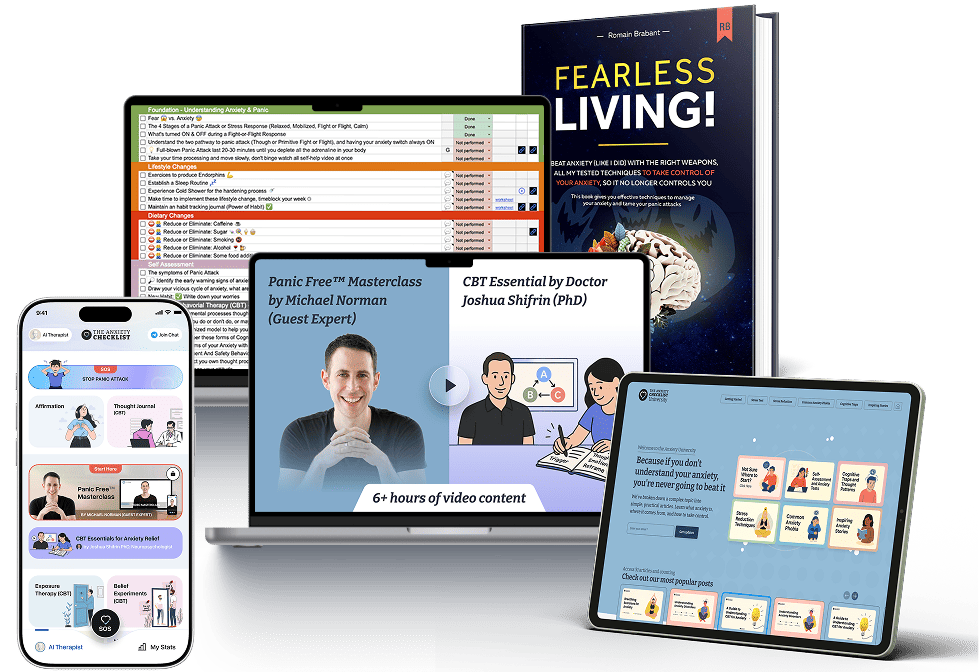Why Take an Anxiety Test?
Anxiety is normal—but when does it become a problem?
- Not sure if your symptoms are just stress or something more?
- Feel overwhelmed but unsure if it’s clinical anxiety?
- Want to track anxiety over time?
Taking a scientifically validated test can help you understand your symptoms and decide if you need professional support. 
Available Anxiety Tests
We provide access to several clinically recognized anxiety assessments. Each test serves a different purpose. Click on any test to learn more and take it.
Compare the best Clinically Validated anxiety tests Used by Healthcare Professionals in one glance! 
Pro Tip: if you're unsure, start with the GAD-7 - it's the most widely used clinical anxiety test! ![]()
Quick Anxiety Test Recommendation:
Confused about which anxiety test to take? 🤔
Find the best anxiety test for you in just 30 seconds!
Answer 3 quick questions, and we'll instantly match you with the best test! 
Purpose: This test does not measure anxiety levels directly. Instead, it recommends the most appropriate clinical anxiety test based on the user's symptoms, severity, and preferences. ![]()
Step 1 /3
Question 1: How severe are your anxiety symptoms?
Question 2: Do you experience physical symptoms of anxiety?
Question 3: Are you also experiencing symptoms of depression or stress?
What's the Difference Between These Tests?
Not all anxiety tests are the same. Some are designed for quick screening, while others provide a detailed evaluation. Here's how they compare:
Pros & Cons of Each Anxiety Test
Each test has its strengths and limitations. Here's a breakdown:
Take the Test Now
Click below to take the anxiety test of your choice:
What Do Your Results Mean?
If your test results indicate high anxiety levels, don't panic! Here's what you can do next:
Scientific References & Credibility 
At Anxiety Checklist, we prioritize scientific accuracy and ensure that all our anxiety test recommendations are backed by clinical research from trusted health organizations such as the American Psychological Association (APA), World Health Organization (WHO), and Centers for Disease Control and Prevention (CDC).
Below are key references that support the validity and reliability of the anxiety tests featured on this page:
1. Generalized Anxiety Disorder (GAD-7 & GAD-2) 
2. Beck Anxiety Inventory (BAI) 
3. State-Trait Anxiety Inventory (STAI) 
4. Overall Anxiety Severity & Impairment Scale (OASIS) 
5. Patient Health Questionnaire-9 (PHQ-9) 
6. Depression Anxiety Stress Scales (DASS-21) 
7. WHO & CDC Guidelines on Anxiety Screening 
World Health Organization (WHO) Recommendations:
Centers for Disease Control and Prevention (CDC) Guidelines:
Why Trust These References? 
Final Note 
At Anxiety Checklist, we are committed to providing accurate, evidence-based information to help individuals better understand their mental health. If you're experiencing severe anxiety, we recommend consulting a licensed mental health professional for personalized guidance.
Need help choosing the right anxiety test?
 "Try our Quick Anxiety Test Finder" and take a clinically validated assessment today!
"Try our Quick Anxiety Test Finder" and take a clinically validated assessment today!
FAQ Section about Anxiety Testing 
At Anxiety Checklist, we are committed to providing accurate, evidence-based information to help individuals better understand their mental health. If you're experiencing severe anxiety, we recommend consulting a licensed mental health professional for personalized guidance.
There is no single "most accurate" anxiety test, as different tests serve different purposes. However, the most widely used and clinically validated anxiety tests include:
If you're looking for a quick and effective screening, the GAD-7 is often considered the best generalized anxiety test. If you experience physical symptoms, the BAI might be more suitable.
GAD-7 (Generalized Anxiety Disorder-7):
PHQ-9 (Patient Health Questionnaire-9):
BAI (Beck Anxiety Inventory):
BAI (Beck Anxiety Inventory):
For generalized anxiety, most doctors start with GAD-7. | If symptoms are more physical, they may use BAI.,
It depends on what you want to measure:
- Use GAD-7 if you experience constant worry, tension, and mental anxiety.
- Use BAI if your anxiety manifests physically (e.g. chest tightness, dizziness, shortness of breath).
Final Thoughts 
- If you want a general anxiety test, take the GAD-7.
- If your anxiety is more physical, take the BAI.
- For diagnosing anxiety, consult a professional—tests are just tools, not official diagnoses.
Need help choosing the best test? "Try our Quick Anxiety Test Finder" now!
Why Trust Anxiety Checklist?
Anxiety Checklist is committed to providing evidence-based mental health resources. We use scientifically validated tests and consult with mental health professionals to ensure accuracy.
 Scientifically backed by research and clinical studies by APA, WHO, and CDC
Scientifically backed by research and clinical studies by APA, WHO, and CDC Trusted by thousands of users worldwide
Trusted by thousands of users worldwide 100% free and anonymous, no sign-up required
100% free and anonymous, no sign-up required
Previous Article





